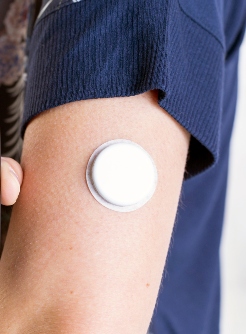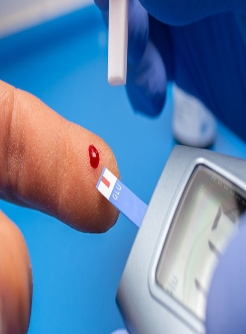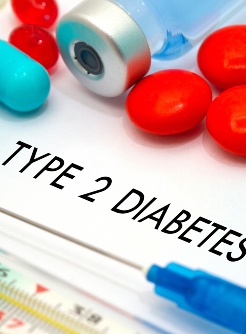Semaglutide Associated with Lower Risk for Certain Neurological/Psychiatric Disorders
By Andrew John, MD /alert Contributor
August 22, 2024
Semaglutide did not appear linked with an increased risk for adverse psychiatric and neurological events after a year of use compared with other diabetes drugs, according to findings published in eClinical Medicine.
“Randomized controlled trials have confirmed the efficacy of semaglutide on metabolic measures and cardiovascular morbidity and mortality in the general population. Further studies are investigating the effects of GLP1-RAs in patients with other chronic diseases,” Riccardo de Giorgi, MD, DPhil, MRCPsych, a clinical lecturer in the department of psychiatry at the University of Oxford, and colleagues wrote. “Pre-clinical evidence suggests that these medications have neurobiological activity, including protection against neuronal degeneration and inflammation, as well as modulation of dopamine-related reward mechanisms.”
However, the researchers continued, regulatory bodies in the UK and US have begun reviewing these drugs in response to reports of worsening mood and suicidality among patients.
“Whether semaglutide has positive or negative effects on brain health therefore still needs to be determined. In this regard, studies using electronic health records are providing valuable information about the comparative effectiveness and safety of semaglutide for outcomes other than glycemic control, including suicidality,” de Giorgi and colleagues added.
The researchers performed a retrospective cohort study of de-identified data from adults with type 2 diabetes. All patients were diagnosed a month or less before starting semaglutide. The date of the first prescription of semaglutide served as the index event, and de Giorgi and colleagues evaluated patients’ risk for being diagnosed with 22 psychiatric and neurological outcomes within 1 year after the index date. Researchers evaluated three cohorts of patients with type 2 diabetes who received semaglutide, comparing them with propensity-score matched controls who received sitagliptin, empagliflozin, or glipizide. These matched cohorts included a total of 23,386 pairs of patients comparing semaglutide with sitagliptin; 22,584 comparing empagliflozin and semaglutide; and 19,206 comparing semaglutide and glipizide.
The outcomes were the risks for the following conditions: alcohol misuse, anxiety, bipolar disorder, cannabis misuse, cognitive deficit, dementia, depression, encephalitis, epilepsy/seizure, insomnia, intracranial hemorrhage, ischemic stroke, migraine, myoneural junction/muscle disease, nerve disorder, nicotine misuse, obsessive-compulsive disorder, opioid misuse, parkinsonism, psychosis, stimulant misuse, and suicidality.
About 49% of patients in each cohort were women, and about 60% were White. Between 51.7% and 53.3% had comorbid psychiatric disorders, whereas 63.2% to 66.2% had comorbid neurological disorders. Semaglutide did not appear to be associated with any of the outcomes, the researchers reported. In some cases, semaglutide was linked with a reduced risk of certain disorders compared with other drugs.
Patients who were prescribed semaglutide were at a lower risk for cognitive deficit compared with those who were prescribed sitagliptin, according to de Giorgi and colleagues (hazard ratio [HR] = 0.72; 95% CI, 0.64-0.8). The same was reportedly true when the researchers compared semaglutide with glipizide (HR = 0.72; 95% CI, 0.63-0.81). Those prescribed semaglutide reportedly faced a lower risk for dementia compared with those prescribed sitagliptin (HR = 0.52; 95% CI, 0.4-0.68).
The semaglutide recipients were less likely to have nicotine misuse disorder than most of the comparator arms, de Giorgi and colleagues wrote (semaglutide vs glipizide, HR = 0.72, 95% CI 0.61-0.85; semaglutide vs empagliflozin, HR=0.77, 95% CI, 0.65-0.9; semaglutide vs sitagliptin, HR = 0.82, 95% CI 0.7-0.95). The researchers added, however, that the reduced risk for nicotine misuse in the sitagliptin comparison was no longer statistically significant after adjustment. Empagliflozin was the most like semaglutide in these comparisons, they wrote.
The study had several limitations, including possible coding errors in electronic health records, and “unknown completeness” of patient data.
“In summary, semaglutide use is not associated with higher risks of onset or recurrence of neurological and psychiatric outcomes in the following 12 months compared to other commonly prescribed antidiabetic agents,” de Giorgi and colleagues concluded. “In contrast, semaglutide has a potential benefit on cognition and nicotine misuse. Our findings can inform current regulatory investigations and public health, and stimulate clinical trials to test the role of semaglutide for the treatment and prevention of cognitive deficits and substance misuse.”
--
Disclosures: Some authors declared financial ties to drug makers. See full study for details.
Photo Credit: Getty Images.































.jpg)
.jpg)





